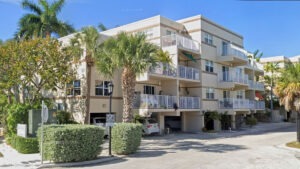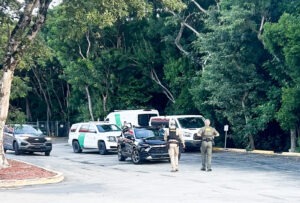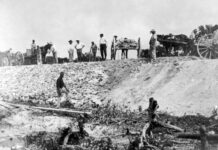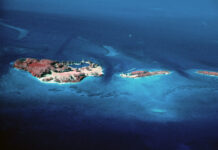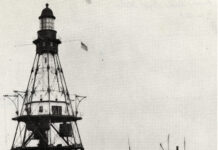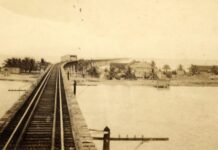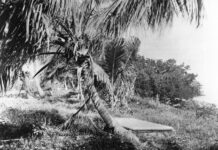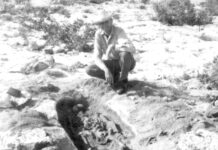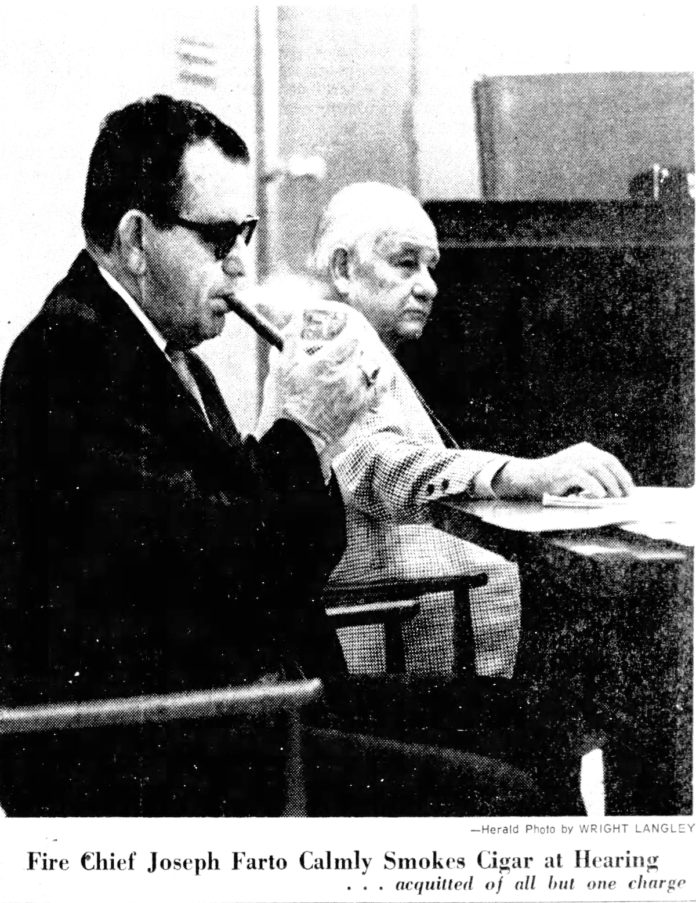
Key West Fire Chief Joseph “Bum” Farto disappeared on Feb. 16, 1976, while awaiting sentencing for a drug trafficking conviction stemming from Operation Conch – a sting operation that found Farto allegedly selling cocaine from the city’s fire station. Bum became the Jimmy Hoffa of Key West, and the island has swirled with rumors of his fate since he disappeared. David Sloan and Quincy Perkins have launched an unparalleled investigation into Chief Farto’s life, legends and disappearance in an attempt to find the truth. Each week they will share elements of their research here in the Keys Weekly while working to solve one of the greatest mysteries in the history of Key West.Share your Bum Farto tips and stories at www.findbumfarto.com.
President Harry S. Truman said, “You can’t get rich in politics unless you are a crook.”
Key West politics have always been a gamble, but when gambling becomes political in the Southernmost City, all bets are off.
Bum Farto was a great politician. He became fire chief in 1964 around the time Armando Perez was named police chief. Both men were well-respected leaders, as well as partners in crime, if you believe FBI documents linking them to the Tampa Mafia, which controlled the bolita gambling in Key West. Though most of the island viewed the numbers game as a harmless part of island culture, another contingent wanted gambling shut down. To accomplish this, they set their sights on Tampa-connected Police Chief Perez in March 1968.
President Harry S. Truman said, “You can’t get rich in politics unless you are a crook.”
Key West politics have always been a gamble, but when gambling becomes political in the Southernmost City, all bets are off.
Bum Farto was a great politician. He became fire chief in 1964 around the time Armando Perez was named police chief. Both men were well-respected leaders, as well as partners in crime, if you believe FBI documents linking them to the Tampa Mafia, which controlled the bolita gambling in Key West. Though most of the island viewed the numbers game as a harmless part of island culture, another contingent wanted gambling shut down. To accomplish this, they set their sights on Tampa-connected Police Chief Perez in March 1968.
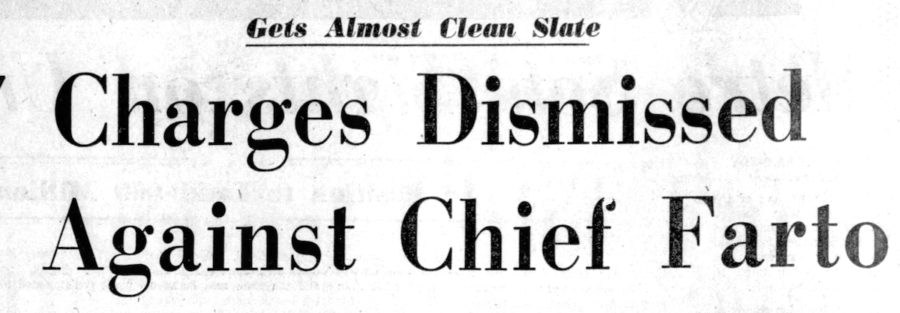
Three members of a newly elected City Commission ordered gambling raids the moment Chief Perez left for vacation. While Perez was on vacation, he was fired without notice and his position was offered to Bobby Brown, who was a candidate for county sheriff. Legalities reversed the chief’s termination, but Perez resigned amid threats that details of his personal life would be exposed to embarrass his family.
Commissioner Gwen McCook openly criticized her fellow commissioners for blackmailing the chief into resigning at a secret meeting. Meanwhile, the commissioners who had wanted Perez out now collected their chips and anted up for a game with the fire chief.
The commissioners suspended Bum Farto in November 1968 for “alleged irregularities in the fire department.” Charges included getting two firefighters to take out $600 loans on his behalf with the promise of payback and overtime; failing to give the fire captain a $20 per diem for a trip to Miami; destroying a department logbook and cashing a $90.73 hospitalization check made out to another fireman. A five-hour hearing chaired by Farto’s nephew revealed that Bum had threatened to fire one of his men who gave testimony, but cleared the chief on all other charges.
An unhappy commissioner suggested sending the case to the grand jury. Farto claimed the whole investigation came about because that commissioner was out to get him. Commissioner McCook later accused the commissioners who were attempting Bum’s ouster of being motivated by “personal, petty, political spite.” Bum went on to fight another day, but state officials were now watching the political poker game.
Miami Herald reporter Wright Langley summed up the state of the island in a May 28, 1968 Miami Herald editorial that said in part, “Gambling is a way of life in Key West. … Gamblers have taken their stand with the candidates. … However, townspeople are learning if they don’t police themselves, they can expect it from the state. The Keys are no longer isolated, and no longer can the people ignore the state laws which govern the county. No longer are we living in the age of the ‘Conch Republic — the land of tomorrow,’ and we can no longer afford to put off today what we can do tomorrow.”
Politics were getting dirty in Conch Town. Alliances formed, lines were drawn in the sand, people plotted to take down their rivals and big brother was watching.
But no one at the table realized the island economy was a house of cards ready to fall.













